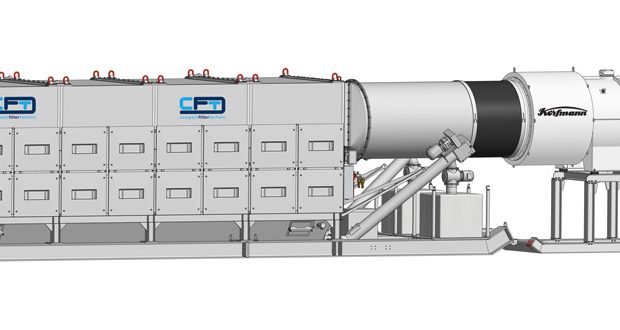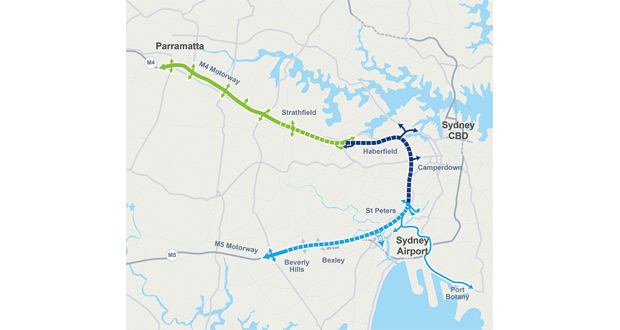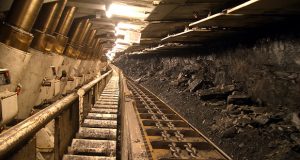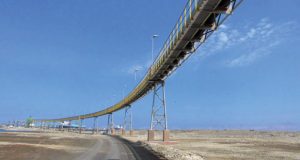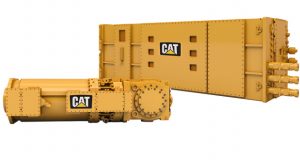Projects which shall improve the infrastructure are generally connected with densely populated countries. An exception is the project “WestConnex” in Australia. The population and the economy of the Australian state New South Wales with its capital Sydney combat an insufficient infrastructure since years. The congestion of harbours and streets by rising imports and increasing population caused the government to invest approximately 17 bn AUD in order to achieve a long-term economic growth and a considerable improvement of the infrastructure in the region around Sydney.
By implementing this project in three stages of construction with a planned term of eight years and completion in 2023, approximately 10,000 work places in different trade branches are generated. The implementation of the project is carried out by CPB Samsung John Holland Joint Venture and Leighton Dragados Samsung Joint Venture. The high investment costs shall finally be compensated by calculated economic benefits in the amount of 20 bn AUD. Nevertheless the planning of this project to the point of the final permission has taken many years owing to financial and ecologic consideration of the population.
The capacity development of the highways M4 and M5 as well as the connection of these both highways shall provide a better connection between city, airport and harbour.
The first two stages of construction comprise the enlargement of the highway M4 to four lanes per driving direction and also the heading to enlarge highway M5. In third stage of construction two additional tunnels are advanced with three lanes per driving direction in order to link both highways (Figure 2).
To construct a highway of 33 km full length, 14 km above ground and 19 km underground as tunnel (approx. 50 m depth) 50 roadheaders in total are applied in this project. Energy-efficient, economic and eco-friendly technologies shall guarantee that upcoming disadvantages and interferences are minimized and the population shall be convinced of the benefit during the course of project.
The air quality on construction sites and in the surrounding area is examined during the entire course of project and the results are transparently published in reports for the population. That requires a professional and reliable dust collection during the building activities.
The company CFT GmbH Compact Filter Technic based in Gladbeck/Germany has been commissioned to guarantee a dust-free, low-noise and resource-efficient dust collection on the construction sites. 35 dry-type dedusting systems of CFT provide a convenient and clean working environment in three construction sections while complying with regulated MAC values in the field of work safety and environment protection. The clean air on the construction sites secures the man-machine protection during the entire project duration.
Engineers of CFT GmbH designed three various systems of the type HTKK (Figure 1)
with dimensions up to 15 m x 2.50 m x 3.50 m and suction capacities up to 3,000 m3/min for WestConnex. The dedusting systems achieve residual dust contents of < 0.1 mg/m3 when they are equipped with filter material quality CFM. These test results were determined by the testing laboratory for air pollution control “Deutsche Montan Technologie GmbH” (DMT) in Essen/Germany. These high-quality systems stand out due to a long life, efficiency as well as a mobile and rugged design. The successful realisation of the project was carried out with the involvement of the associate company Korfmann Lufttechnik GmbH in Witten/Germany and DFT GmbH Deichmann Filter Technic in Bebra/Germany.
MTV Mine & Tunnel Ventilation Pty. Ltd., CFT‘s Australian business partner, was commissioned to guarantee quick and personal services on site.
Korfmann-made fans provide the air transport by generating a corresponding negative pressure and owing to their rugged, compact and modular execution they can be applied in each of the numerous construction sections. The energy-efficient fan stations have an optimised noise level. All in all Korfmann Lufttechnik GmbH has supplied 35 fan stations. Fans of the type GAL are mainly used. They generate extremely high pressure and achieve excellent separation efficiency (up to 90 % and more) with a diameter of 1.4 m, a driving capacity of 2 x 110 kW and using two contra-rotating impellers.
DFT GmbH Deichmann Filter Technik has manufactured the dust collection bins and discharging organs which are part of CFT dedusting plants.
The products of the companies CFT, Korfmann and DFT are used in mining and tunnelling worldwide as well as in industrial applications because of their reliable and low-maintenance operation mode.
Further information/Weitere Informationen:
CFT GmbH Compact Filter Technic
www.cft-gmbh.de
DFT GmbH Deichmann Filter Technic
www.deichmann-filter.de
Korfmann Lufttechnik GmbH
www.korfmann.com
